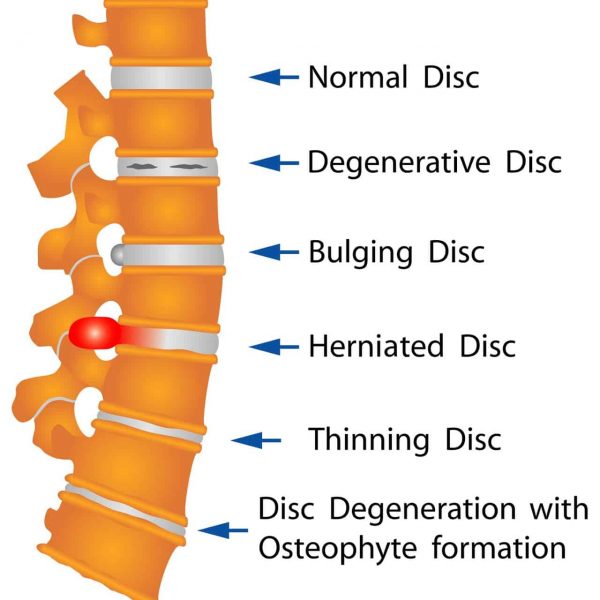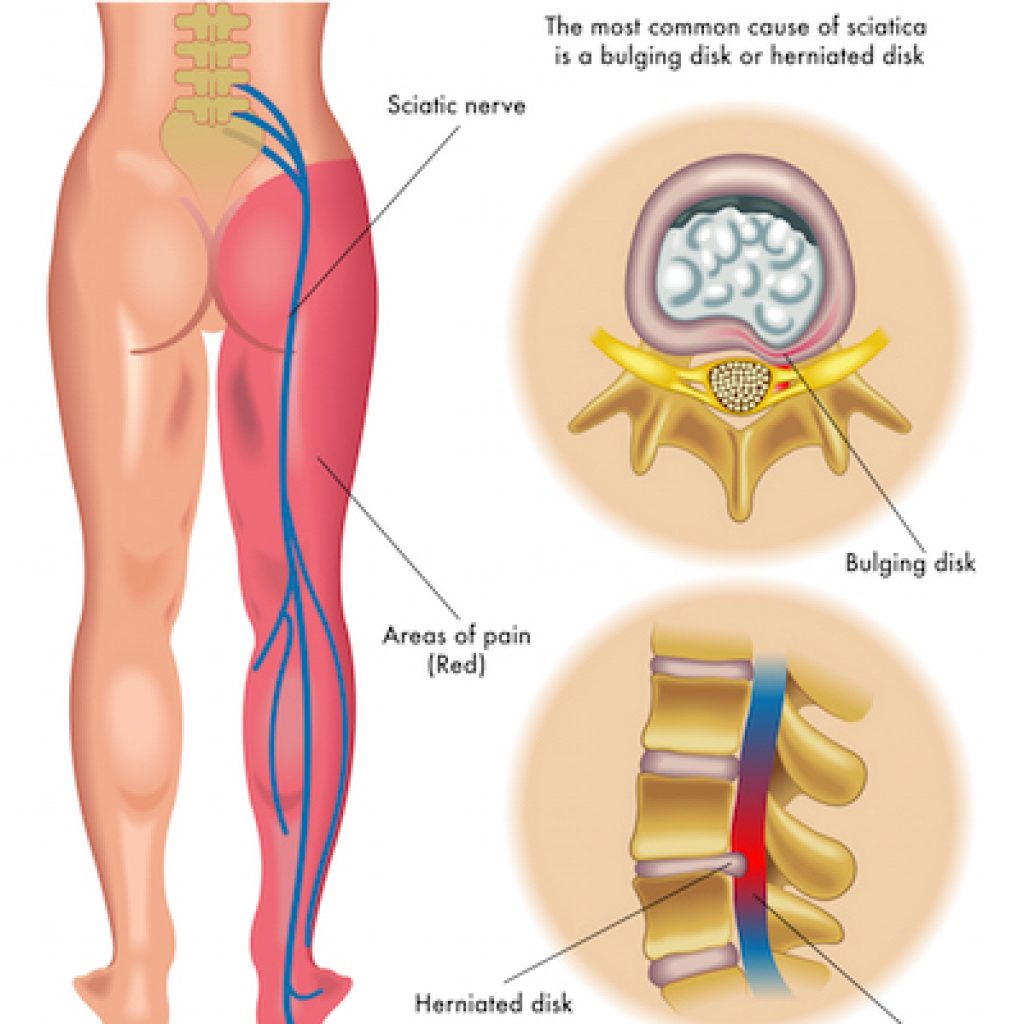Dear patient the information provided to you is based on the evidence-based literature and our experience with the intention of providing insights into the your condition its symptoms and treatment available.
What is lumbar disc prolapse?
Lumbar disc prolapse or Herniation is a common cause for low back pain as well as leg pain [ sciatica] which happens when a rubbery disc protrudes into the spinal canal or neural foramen leading causing irritation and pinching of the nerve or spinal cord.

What causes disc prolapse?
This is most often as a result of gradual, age related wear and tear called disc degeneration often preceded by on and off low back pain.
Who are at risk?
It is most commonly seen with people having sedentary life styles with poor lumbar musculature, obesity, people with desk jobs, genetics, smokers and people with physically demanding jobs.
What are the symptoms?
Intense low back pain, radicular pain in the leg, occasional weakness and/or numbness in the legs, rarely disturbances in passing urine and moving bowel.

How is it diagnosed?
Clinical examinations, radiological investigations and MRI scans
How is it managed?
At Sun Orthopaedics we successfully manage over 95% cases with conservative means in the form of rest, medications, physiotherapy, activity modifications and strengthening exercises.
How much time it takes to see the results?
Success of medical management depends on individual to individual, severity of the problem to begin with and the way how they follow our instructions. Usually one can see improvement in 2 to 6 weeks.
What is the indication for surgery?
Persistent pain beyond six weeks duration, cauda equina syndrome [ saddle anesthesia, bowel and bladder disturbances]
What is not allowed during acute stage?
Avoid sitting for long hours, sitting on the floor, sitting on the sofa, lifting heavy weights, participating in sports and avoid long distance road journeys. Since many people ask me about yoga – yoga, though being a very good exercise PLEASE DON’T DO DURING ACUTE STAGE.



Follow us